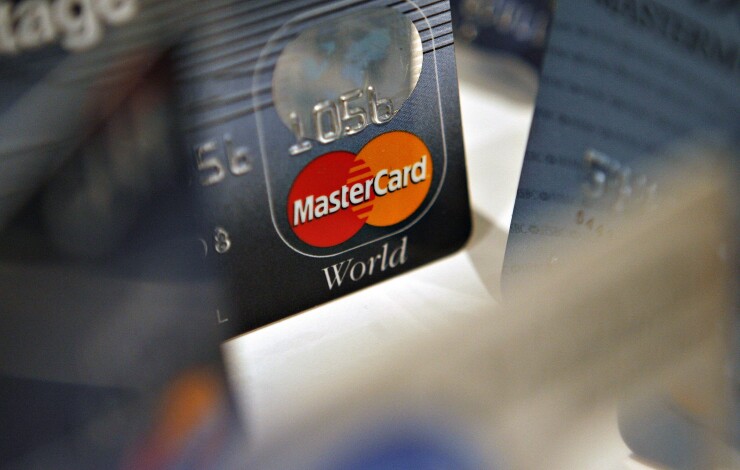Want unlimited access to top ideas and insights?
Mastercard is among the payment companies to embrace a new advancement in credit card security, biometric fingerprint scanners.
Consumers with these types of cards would have to scan their fingerprint for their credit card transaction to go through. The sensor would rest on the corner of the card, and users place their finger on it as the card is inserted into a reader. The technology has been successfully tested in South Africa, and Mastercard now plans to roll it out across Europe and Asia Pacific regions.
The payment industry welcomes any and all security advancements in its continued fight against fraud. In the U.S. specifically, credit card fraud has been steadily rising in the last few years. One ValuePenguin

While fingerprint recognition is generally accepted as more secure than our current security methods, it’s still far from foolproof. There are some inherent flaws in the system that many fraudsters and would-be card thieves are already privy to. Researchers from New York University and Michigan State University, for example, were able to develop a set of artificial
Issuers and payment companies should communicate to consumers using credit card payments there are still some basic checks to keep themselves safe from fraud. While things like Mastercard’s fingerprint scanners can help, nothing can substitute a security-conscious mind.
Companies should advice consumers to always check for skimmers at unmanned terminals. One old trick used by credit card thieves is to tamper with card readers in public places, like gas stations or ATMs. Give card readers a pull before inserting your card to make sure you aren’t putting your card into a fraudster’s detachable device. In general, you should avoid suspicious-looking ATMs.
Consumers should also be advised to closely examine statements. Sometimes you can’t avoid having your details from becoming compromised. Checking statements is a quick way to spot any suspicious activity and report it to the bank as quickly as possible to minimize any financial damage done.
Consumers should be told to not save payment information on websites. Most credit card information today is stolen through data breaches. If your favorite e-commerce site doesn’t employ good security practices, your saved payment information could be a sitting duck.
The last point is especially important given the fact that card-not-present fraud is on the rise. An increasing number of data breaches have put consumers’ payment information in the hands of hackers. Mastercard’s fingerprint technology, on the other hand, is designed to combat offline fraud. This is why even with credit cards hot security features still have some risk.





